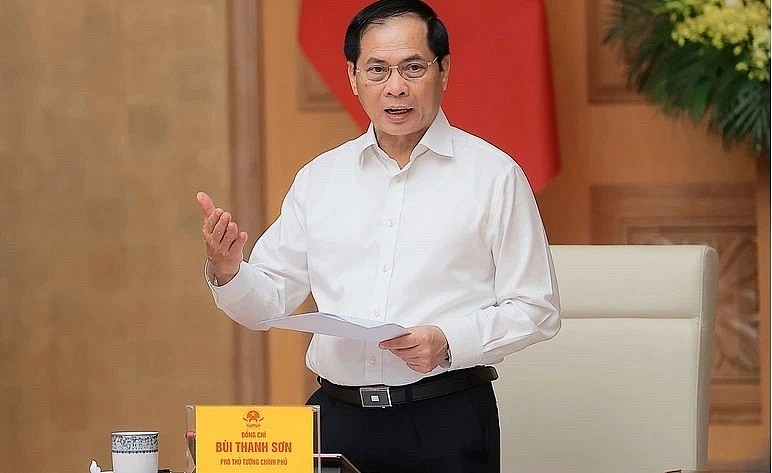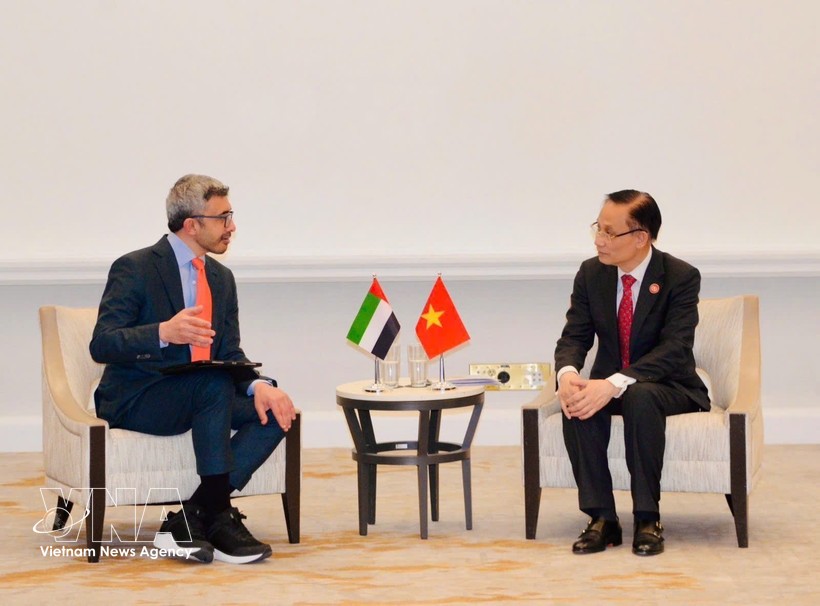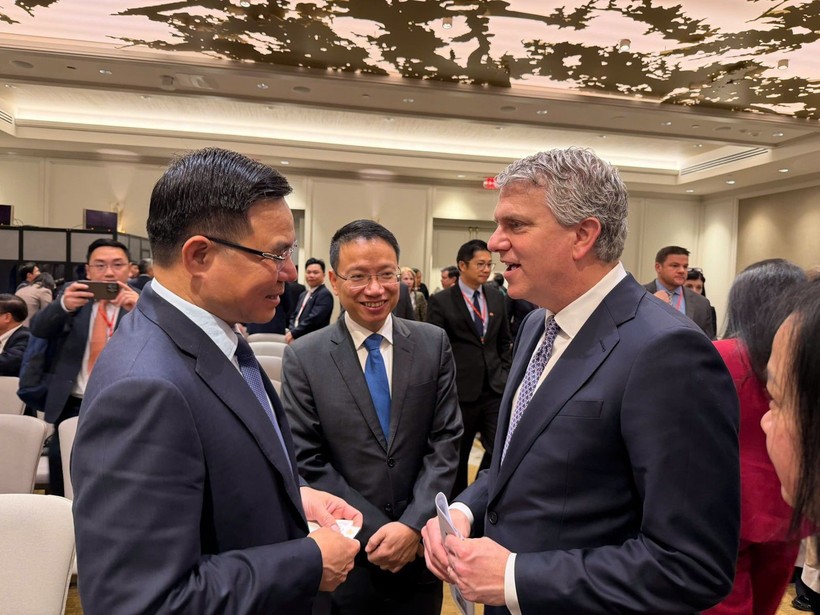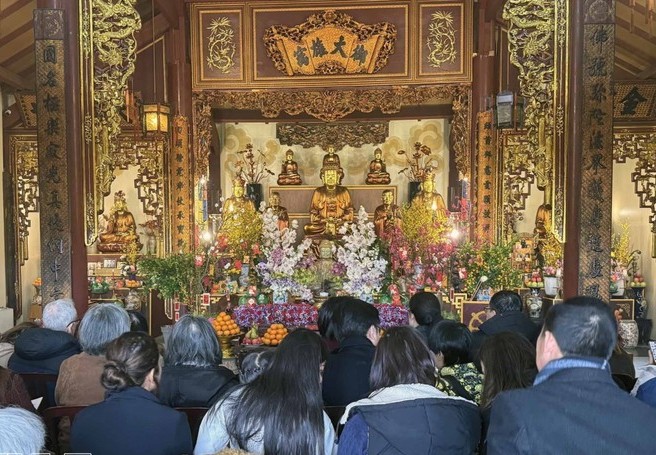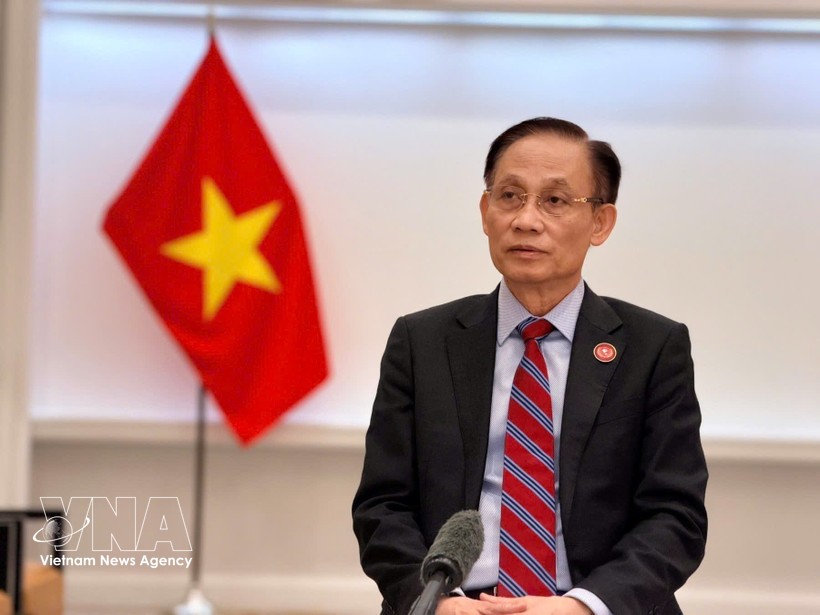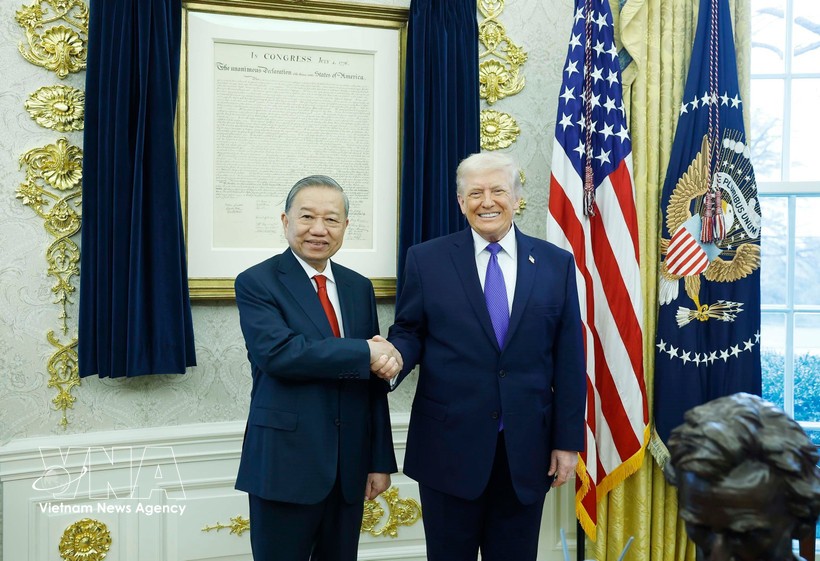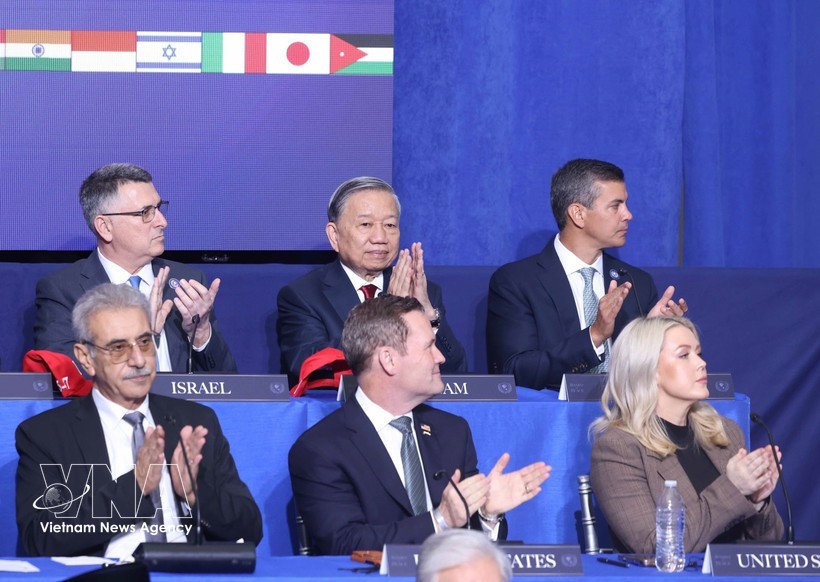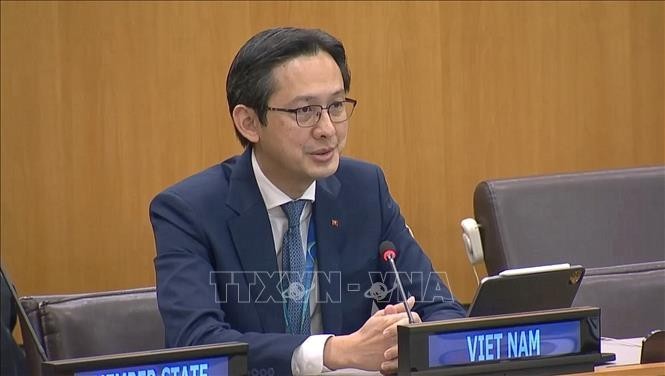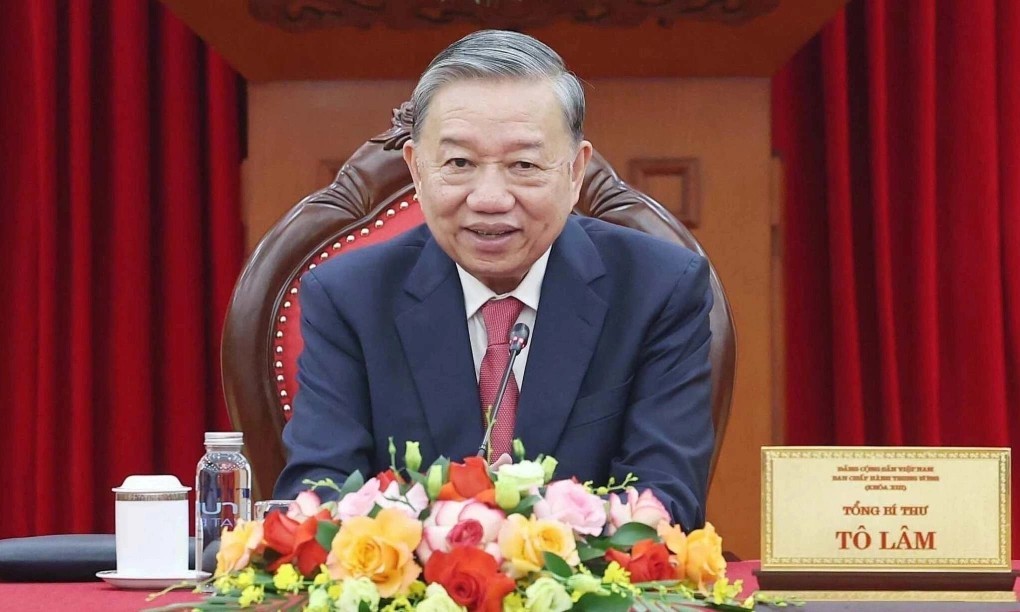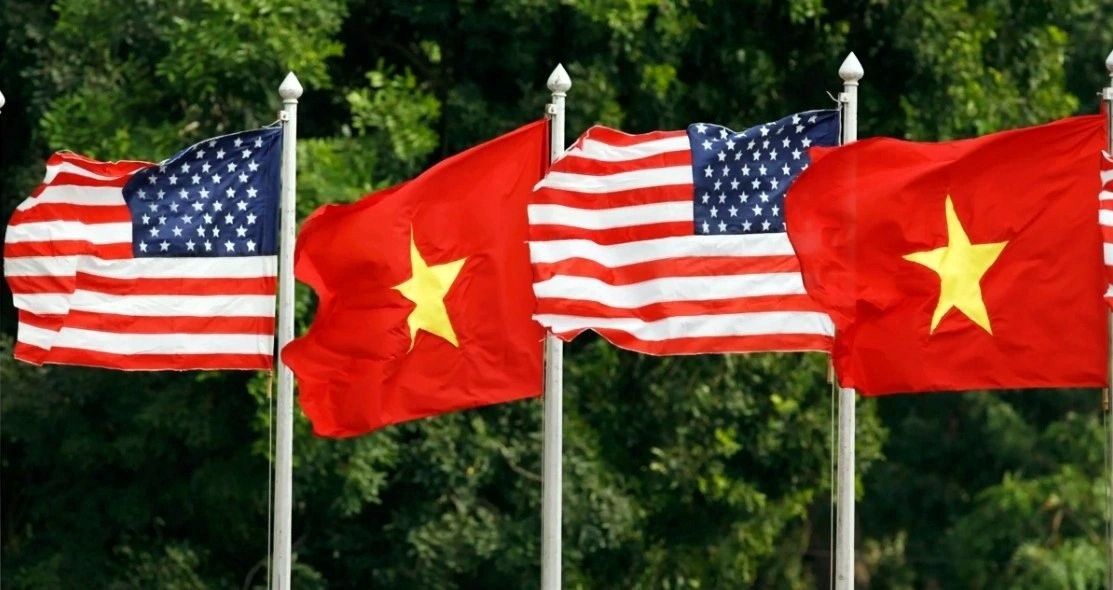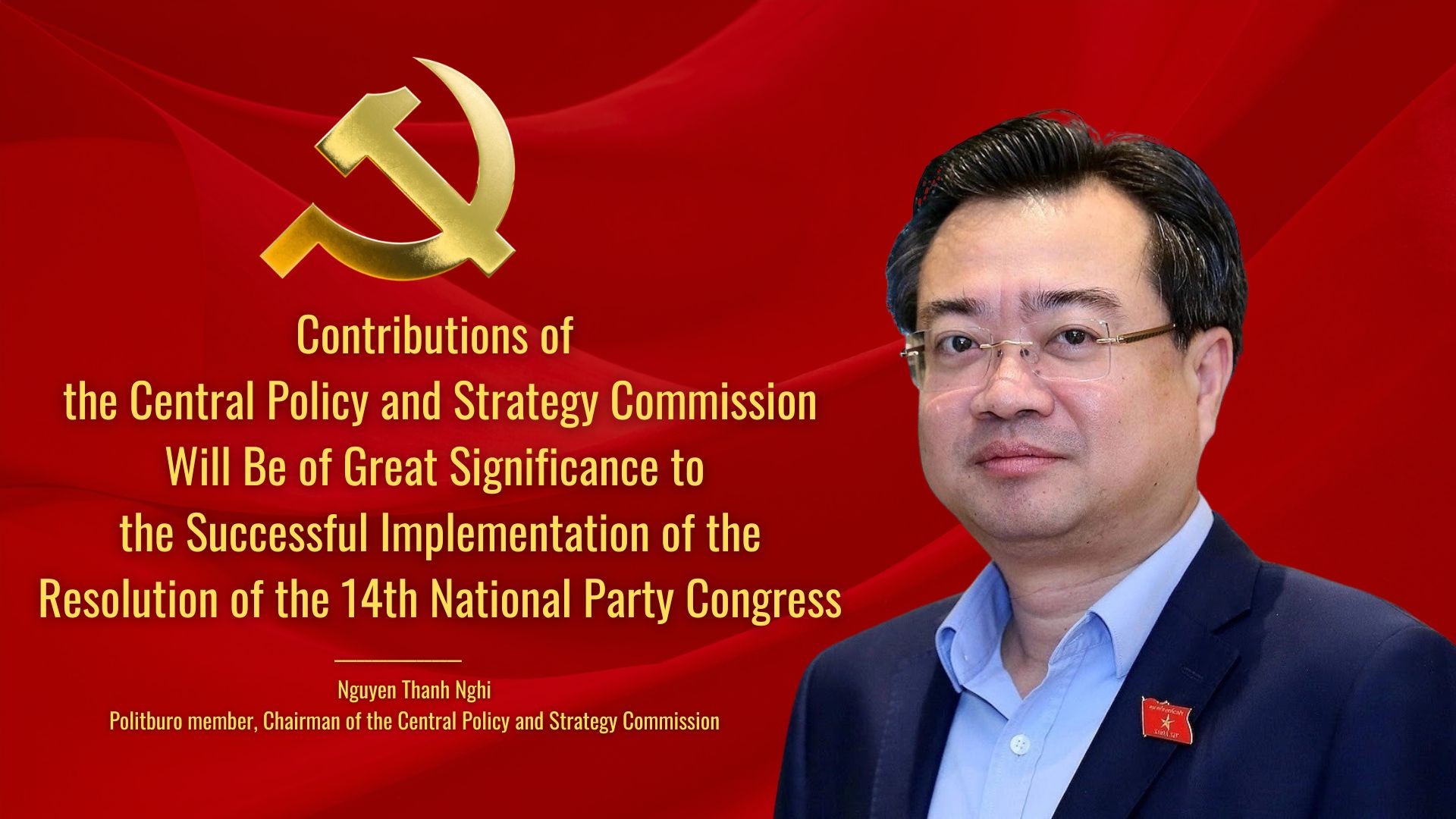Vietnamese, Chinese legislative bodies enhance collaboration
Vice Chairman of the Vietnamese National Assembly (NA) Tran Quang Phuong held talks with Zhang Qingwei, Vice Chairman of the Standing Committee of the National People's Congress (NPC) of China, in Beijing on August 21, within the framework of his working visit to China.
At the talks, both sides expressed satisfaction with the positive progress in relations between the two Parties and two countries in recent times, including exchanges and cooperation between the Vietnamese NA and the NPC of China. They also had in-depth discussions and reached common understanding on measures to further strengthen and deepen relations between the two legislative bodies, as well as between the two nations in the time ahead, according to VNA.
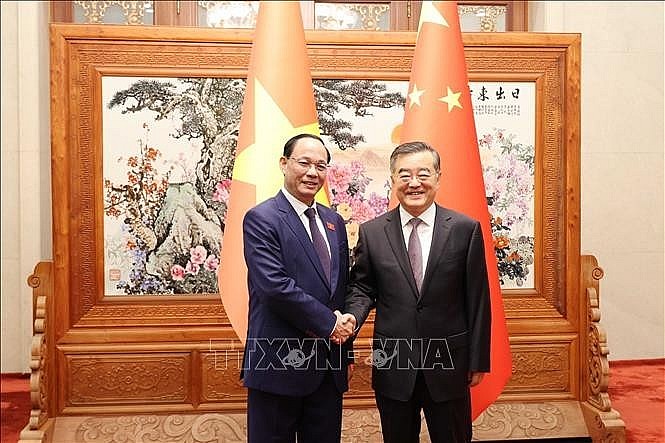 |
| Vice Chairman of the Vietnamese National Assembly Tran Quang Phuong (L) and Zhang Qingwei, Vice Chairman of the Standing Committee of the National People's Congress of China. (Photo: VNA) |
Phuong, who is also Chairman of the Vietnam – China Friendship Parliamentarians’ Group, proposed the two sides further enhance regular high-level contacts; make thorough preparations for the early convening of the first session of the Vietnam – China Inter-Parliamentary Cooperation Committee; effectively implement the cooperation agreement between the two legislative bodies; and enhance the exchange of experiences in building a socialist rule-of-law state under the leadership of the Party, and further promoting the role of the legislatures in fostering substantive cooperation in various fields.
He highlighted the importance of expanding experience-sharing in legislation, supervision, people’s aspiration work, as well as national governance and social management in the new era of development; strengthening coordination in building a more favorable legal and policy framework for strategic connectivity, economic cooperation, transport infrastructure, and the implementation of railway projects, with an early start of the Lao Cai – Hanoi – Hai Phong railway line within this year; and continue close coordination to effectively organise activities within the Vietnam – China Year of Humanistic Exchange 2025.
Zhang stressed that further strengthening theoretical exchanges and practical experience sharing on Party building, state governance, and law-making will deepen the friendly neighbourliness, the comprehensive strategic cooperative partnership, and the Vietnam–China community with a shared future which carries strategic significance, and align with the aspirations of the two countries' people.
He stressed the need to further promote the cause of socialism in the context of complex global developments, thereby contributing to Party building and socialist development in both countries.
China attaches great importance to and prioritizes developing relations with Vietnam, and stands ready to work with the country to effectively implement the high-level agreements and common perceptions already reached, he said, affirming that the NPC of China is willing to further enhance and deepen friendship and practical cooperation with the Vietnamese NA, contributing to developing the two countries’ relations in the coming time.
UN Deputy Secretary-General hails proud achievements of Vietnam’s Public Security Force
The Permanent Mission of Vietnam to the United Nations (UN) held a ceremony marking the 80th anniversary of the founding of the Vietnam People’s Public Security Force (August 19, 1945-August 19, 2025) on August 20 in New York.
The event was chaired by Ambassador Do Hung Viet, Permanent Representative of Vietnam to the UN, with the participation of UN Deputy Secretary-General Atul Khare, UN Police Adviser Faisal Shahkar, Acting UN Military Adviser Cheryl Pearce, as well as ambassadors, police and military advisers, and representatives of permanent missions of member states.
In his remarks, Ambassador Do Hung Viet emphasized the significance of the “historic autumn of 1945” and the victory of the August Revolution for Vietnam’s destiny and struggle for national liberation, in which the People’s Public Security Force played a vital role.
Over the past eight decades, the Vietnam People’s Public Security Force has steadily developed, excelling not only in safeguarding national security, maintaining social order and safety, and combating crime, including cybercrime and hi-tech crime, but also in joining the Vietnam People’s Army in increasingly active and effective participation in UN peacekeeping operations.
The Ambassador recalled milestones in Vietnam’s peacekeeping contributions, from the first public security officer seconded to UN Headquarters in 2022 to more than 20 officers and servicemen deployed to peacekeeping missions in South Sudan, Abyei (the disputed area between Sudan and South Sudan), and the Central African Republic, leading to the establishment of Vietnam’s first Peacekeeping Police Unit in 2024.
He noted that women now account for over 30% of public security officers sent to peacekeeping missions, underscoring Vietnam’s strong commitment to advancing the UN’s Women, Peace and Security agenda, reported VOV.
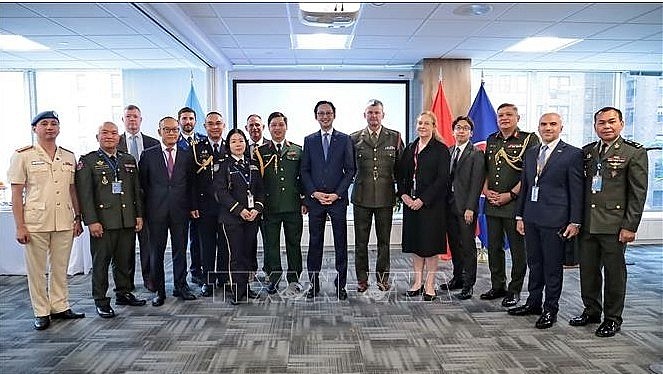 |
| Ambassador Do Hung Viet with guests (Photo: VNA) |
On this occasion, the Vietnamese diplomat expressed appreciation to UN leaders, the Department of Peace Operations (DPO), the UN Police Division (UNPOL), as well as relevant UN agencies and member states, for supporting Vietnam’s People’s Public Security force in fulfilling its duties.
He affirmed Vietnam’s readiness to deepen cooperation with international partners in tackling shared security challenges and contributing to global peace, stability, and sustainable development.
In their congratulatory remarks, UN Deputy Secretary-General Atul Khare and UN Police Adviser Faisal Shahkar applauded the remarkable efforts and proud achievements of Vietnam’s People’s Public Security force over the past 80 years. They highlighted its crucial role in maintaining security and social order, thereby creating favorable conditions for Vietnam’s socio-economic development and international integration.
The UN leaders also underscored the professionalism, discipline, and contributions of Vietnam’s forces, including public security officers, in UN peacekeeping operations. They stressed that Vietnam’s participation has helped strengthen international peace and security, while promoting the core values of the UN Charter and the principles of multilateralism.
President of Paraguay expects to pay official visit to Vietnam this year
Vietnamese Ambassador to Paraguay Ngo Minh Nguyet presented her credentials to the President in Asuncion, on August 20.
The Paraguayan leader expressed his admiration for Vietnam's dynamic development as well as its socio-economic achievements, VGP reported.
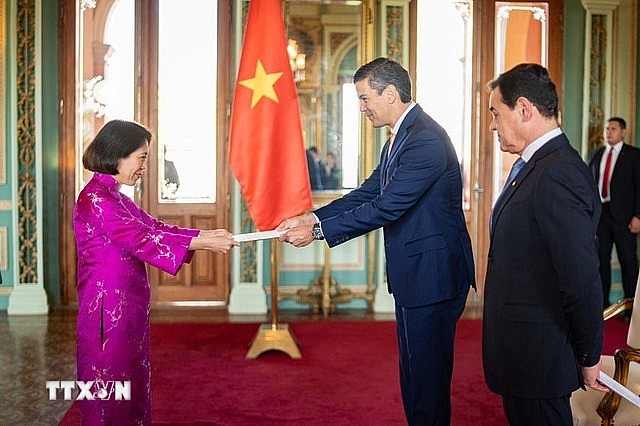 |
| Vietnamese Ambassador to Paraguay Ngo Minh Nguyet (L) presents her credentials to President of Paraguay Santiago Peña Palacios, Asuncion, August 20, 2025. Photo: VNA |
Despite the geographical distance, Paraguay and Vietnam share many similarities in culture, history, and struggle for national independence, said President Palacios, adding that the potential for cooperation between the two countries remains very significant.
He highly valued the outcome of Paraguayan Minister of Industry and Commerce Javier Giménez García de Zúñiga's visit to Vietnam in 2024, which opened up many opportunities for bilateral economic and trade cooperation.
Vietnam and Paraguay established diplomatic relations on May 30, 1995. Paraguay is among Vietnam's 10 largest trading partners in Latin America and one of the markets with the fastest-growing trade turnover with Vietnam.
In 2023, bilateral trade reached more than US$280 million, an increase of 22.2 percent compared to the previous year.
Science, technology drive Vietnam to new era: Scholars
Science and technology have played a key role in transforming Vietnam from a war-torn country into a dynamic, globally integrated nation over the past 80 years, and remain central to the country’s sustainable and inclusive development in a new coming era, according to scholars.
Notably, science and technology are crucial for marine economy development. According to Assoc. Prof. Dr. Nguyen Chu Hoi, Vice President of the Vietnam Fisheries Society and a deputy to the 15th National Assembly, to unlock the full potential of the marine economy, science and technology must take the lead. He called for bold policies to attract overseas Vietnamese and international experts, similar to how President Ho Chi Minh supported the oil and gas sector or how French scientist Alexandre Yersin advanced science in Vietnam, cited VNA.
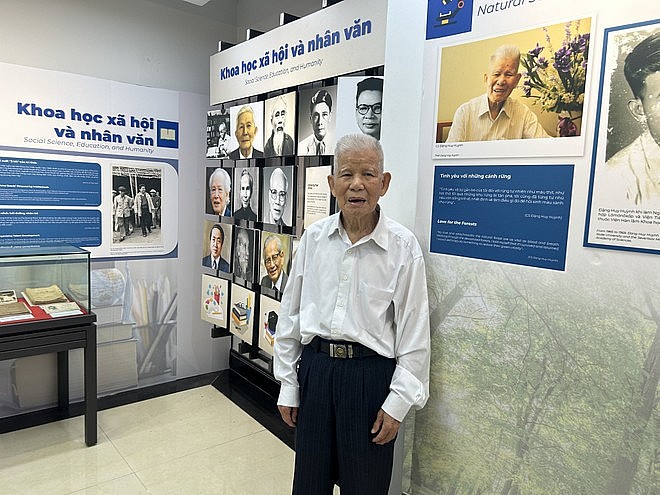 |
| Prof. Dr. Sci. Dang Huy Huynh, ASEAN Biodiversity Hero and Chairman of the Vietnam Heritage Tree Council (Photo: VNA) |
Recalling the past milestone policy for agriculture transformation known as "Contract 10," mirroring the agricultural reform that empowered farmers and boosted production, Dr. Hoi proposed a similar policy for science and technology. Such a breakthrough policy will become a strong boost, create great momentum and attract talent, he noted.
He also underscored the importance of aligning the Sustainable Marine Economic Strategy to 2030 with a vision to 2045 with ongoing political reforms and environmental protection. Unified governance of merged coastal provinces could open new, investor-friendly economic zones.
Science, innovation, and the path to dustainable development
Prof. Dr. Sci. Dang Huy Huynh, ASEAN Biodiversity Hero and Chairman of the Vietnam Heritage Tree Council, reflected on the wartime contributions of science, highlighting innovations such as Prof. Tran Dai Nghia’s military inventions, the A12 and DKB missile systems, and technologies developed by the Military Technical Institute.
Since 1975, scientific advancements have fueled progress in agriculture, information technology, biotechnology, engineering, and biomedicine. Prof. Huynh cited notable achievements, including Soc Trang’s high-quality fragrant rice varieties, jack-up drilling rigs operating in 90-meter-deep waters, and the construction of super-heavy offshore oil platforms, bringing Vietnam closer to regional and global leadership.
With science, technology, innovation, and digital transformation recognised as key drivers of growth, Prof. Huynh emphasized the need to integrate scientific expertise into policymaking and governance. He called for stronger incentives for researchers, better working conditions, and increased public recognition of scientific contributions.
He also underlined the urgency of legal reform, advocating for greater autonomy for scientists and research institutions to initiate or commission projects. This would ensure that innovation is practical, responsive, and demand-driven. Furthermore, he proposed expanding international cooperation by supporting world-class laboratories, global research networks, and open data systems.
By dismantling outdated barriers and leveraging both domestic and international expertise, Vietnam can ensure that science and technology remain the cornerstone of national development - sustainable, resilient, and inclusive.
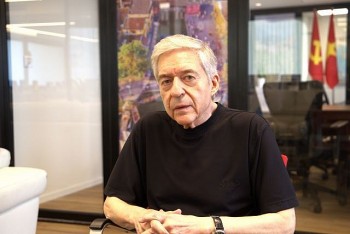 | Vietnam News Today (Aug. 18): Bhutan King’s Vietnam visit to step up bilateral ties; Vietnam at 80 – From war-torn nation to global symbol of ... |
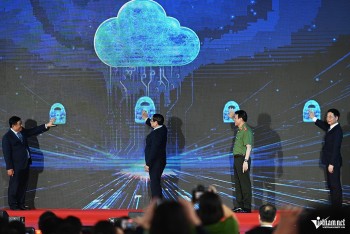 | Vietnam News Today (Aug. 19): Vietnam Opens Southeast Asia’s Largest National Data Center Vietnam News Today (Aug. 19): Vietnam opens Southeast Asia’s largest national data center; Vietnam values multifaceted cooperation with Bulgaria: ambassador; New visa waiver policy to ... |

